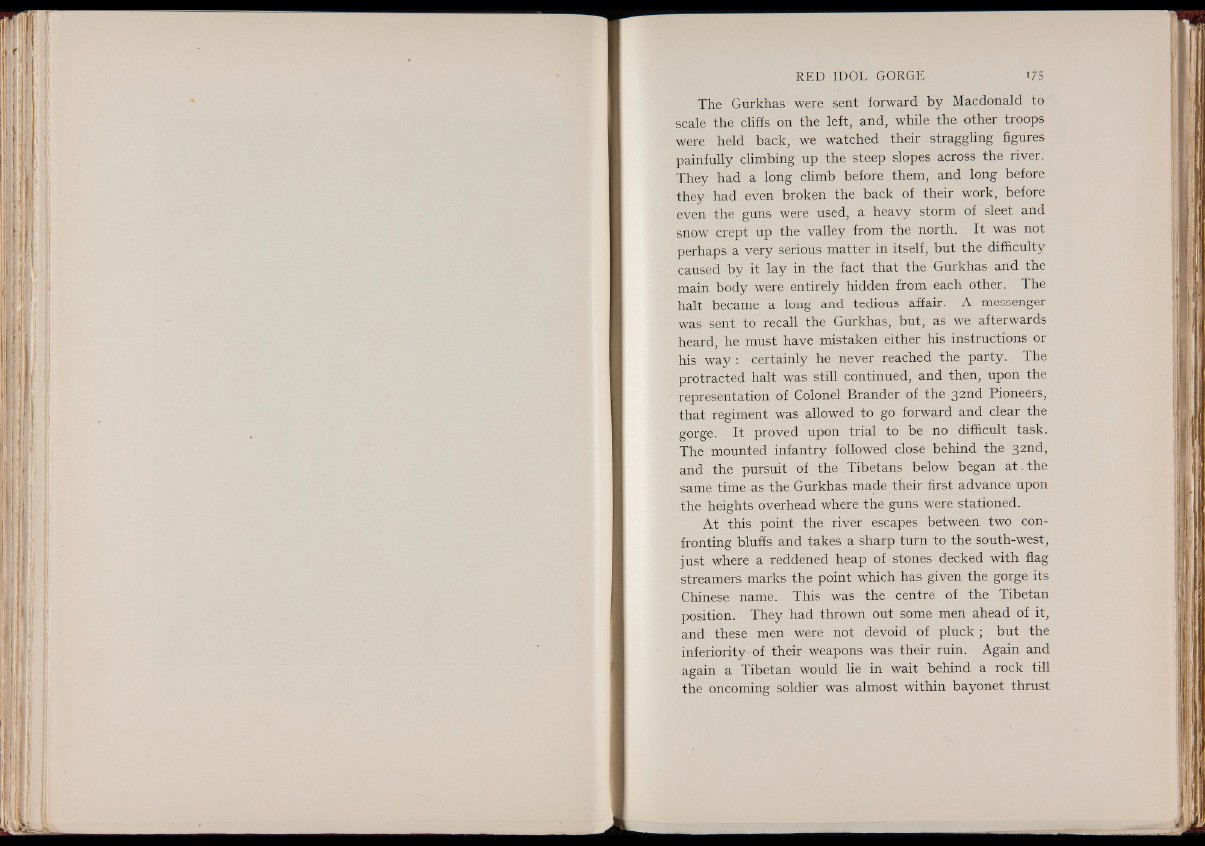
The Gurkhas were sent forward by Macdonald to
scale the cliffs on the left, and, while the other troops
were held back, we watched their straggling figures
painfully climbing up the steep slopes across the river.
They had a long climb before them, and long before
they had even broken the back of their work, before
even the guns were used, a heavy storm of sleet and
snow crept up the valley from the north. It was not
perhaps a very serious matter in itself, but the difficulty
caused by it lay in the fact that the Gurkhas and the
main body were entirely hidden from each other. The
halt became a long and tedious affair. A messenger
was sent to recall the Gurkhas, but, as we afterwards
heard, he must have mistaken either his instructions or
his way : certainly he never reached the party. The
protracted halt was still continued, and then, upon the
representation of Colonel Brander of the 32nd Pioneers,
that regiment was allowed to go forward and clear the
gorge. It proved upon trial to be no difficult task.
The mounted infantry followed close behind the 32nd,
and the pursuit of the Tibetans below began a t.th e
same time as the Gurkhas made their first advance upon
the heights overhead where the guns were stationed.
At this point the river escapes between two confronting
bluffs and takes a sharp turn to the south-west,
just where a reddened heap of stones decked with flag
streamers marks the point which has given the gorge its
Chinese name. This was the centre of the Tibetan
position. They had thrown out some men ahead of it,
and these men were not devoid of p lu ck ; but the
inferiority of their weapons was their ruin. Again and
again a Tibetan would lie in wait behind a rock till
the oncoming soldier was almost within bayonet thrust